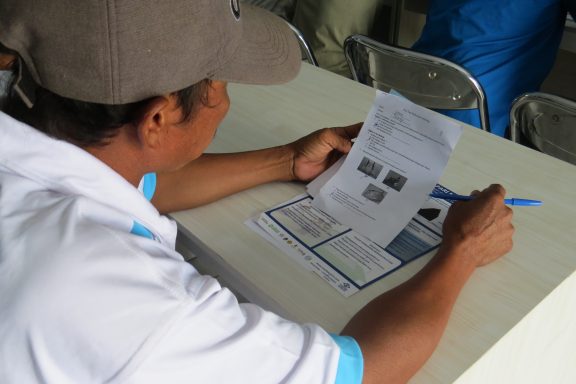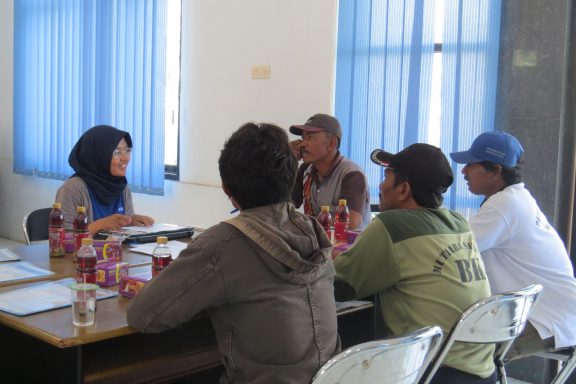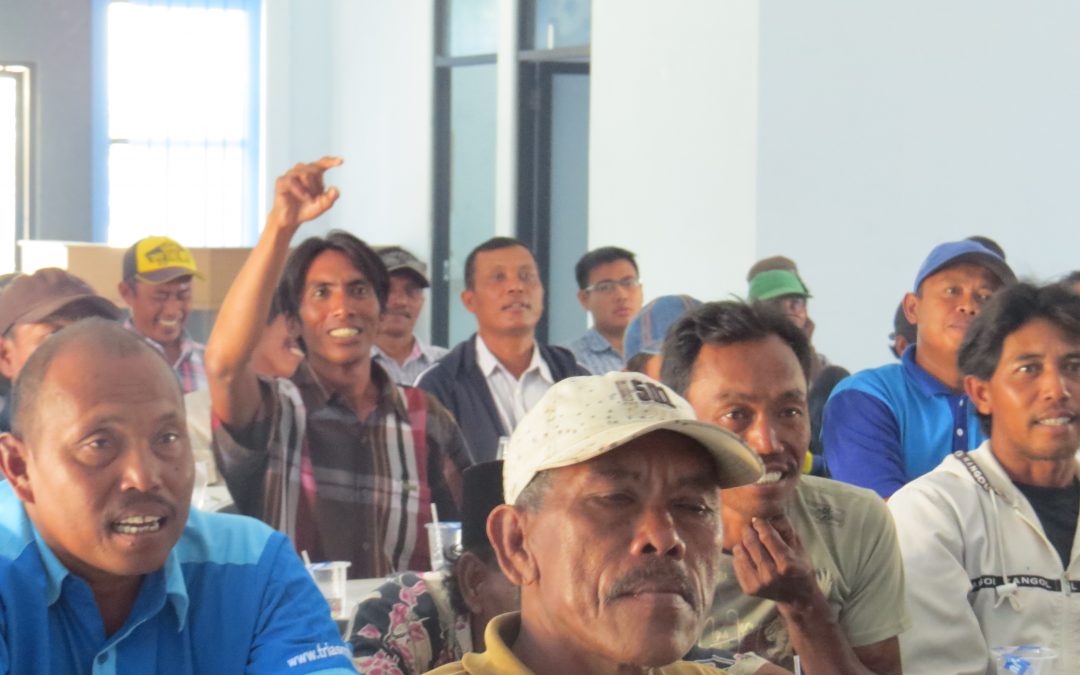On September 4, 2017 we held a training workshop for 49 fishers that aimed to increase awareness about mobuild ray conservation status, sustainable seafood markets, and bycatch reduction tools and technologies.
The Ports and Marine and Fishery Resources Management Unit (UPT P2SKP) kindly made their meeting room available to us, and we began at 08:30 with registration and opening. Through a series of seminars and discussions, we aimed to introduce participants to the goals of the Sustainable Fisheries project, and increase awareness about mobuild ray conservation status, sustainable seafood markets, and bycatch reduction tools and technologies. Pre- and post-training questionnaires indicated that 91% of participants now have increased knowledge about these topics, and in the process, we have developed stronger links with the local fishery community.

A fisher completes a post-training questionnaire
At the end of this workshop, we invited eligible fishers (those that operate small-scale drifting gillnets) to register their interest in participating in our pilot trial to evaluate bycatch reduction technologies. Thirty-seven participants added their name to a hat, and we drew 20 names at random to participate in the study.
On September 5 we held a followup training for these 20 fishers. This workshop aimed to provide more detailed training on the tasks and obligations of participants during the six-month pilot. The training consisted of three sections: how to operate the swordfish light units; how to complete the fisher logbooks; and an introduction to the participant’s agreement.
Participants divided into three groups and rotated between three training stations.
At the first station, participants learned how to operate and maintain the swordfish light units, and how to attach them to their fishing nets. We also explained how the lights work underwater, and demonstrated the automatic operation of the lights by dipping them into a glass of water. The fishers were very enthusiastic and keen to try the devices on their next fishing trip. They also provided some suggestions and feedback, and together we made some minor modifications to the devices to aid their attachment to the fishing nets.
At the next station, participants learned how to complete their daily logbooks. The logbooks will be a valuable tool to enable us to evaluate any differences in target and bycatch catches between test and control groups. We also explained how we will conduct port monitoring to help check and verify logbook data.
At the final station, we introduced participants to the participant’s agreement, which outlines the responsibilities and obligations of fishers and our team during this pilot. We also discussed further the project objectives and some of the challenges that fishers experience.
At the end of the workshop, we distributed logbook packs to all participants, and swordfish light units to 10 randomly selected test participants. Our next task is to visit these fishers over the next few days to provide further support and assistance during the early stages of the project.

Vidlia Rosady discusses the participant’s agreement with fishers


